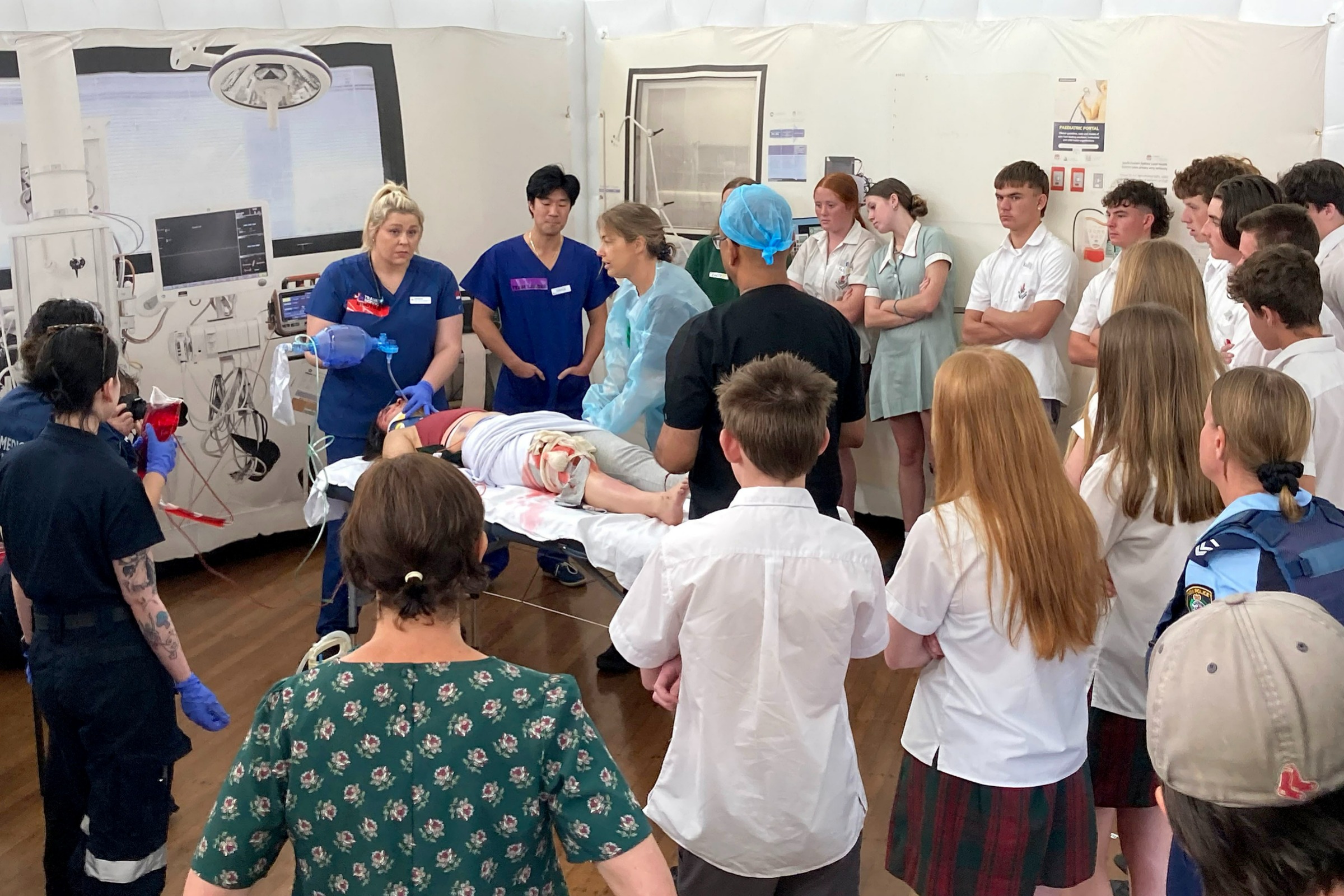Saving lives one PARTY at a time
Getting through to teenagers and asking them to consider consequences of risky behaviour isn’t an easy task.
That’s why the Prevent Alcohol and Risk-related Trauma in Youth (PARTY) Program is so highly regarded. Their safety messages speak to our youth through practical workshops to highlight the impact risky behaviour can have on their life and the lives around them.
Developed in 2016 by SESLHD’s trauma team, the program runs through group activities to engage with Year 10 students. Prior to the COVID-19 pandemic, students from 16 schools across the St George and Sutherland Shire regions would tour the Clinical Skills Lab, ICU, Trauma Ward and Emergency Department at St George Hospital, where they would witness a confronting trauma re-enactment designed to show the students what occurs when someone is a victim of trauma from risk taking behaviour.
The pandemic put a pause on the program with hospitals introducing visitor restrictions, so Sarah O’Hare, SESLHD Trauma and PARTY Clinical Nurse Consultant, adapted the program to take it into schools.
To recreate the simulation scene, arguably the most impactful part of the education program, Ms O’Hare applied for funding to build an inflatable resuscitation room. The Institute of Trauma and Injury Management (ITIM), a network within the Agency for Clinical Innovation, funded the inflatable simulation room for the revised program, where doctors and nurses act out the trauma response in the school.
“You can see the students are really engaged when they watch the trauma re-enactment and it’s great to be able to bring this element into the schools,” Ms O’Hare said.
Ms O’Hare said running this program made her feel like she’s making a difference to the community.
“We chat to the students about drugs, alcohol and other risk-taking behaviours and have some great open discussions with them about safety, risk, choices and consequences. The activities are very hands on, students attempt to do everyday tasks like make a sandwich with only one arm, to experience what life would be like if they had their arm amputated in an accident. It’s a real eye opener for students about the long-term impact of injury.”
Students also wear ‘drunk/drug goggles’ to experience the coordination challenges of being intoxicated.
“One person will react differently to the effect of the goggles to the next and this is a great conversation starter about how people respond to drugs and alcohol in different ways,” Ms O’Hare said.
NSW Police representatives and a Trauma Ambassador present to the students, joined by Paramedic students who volunteer their own time to help assist with the program.
